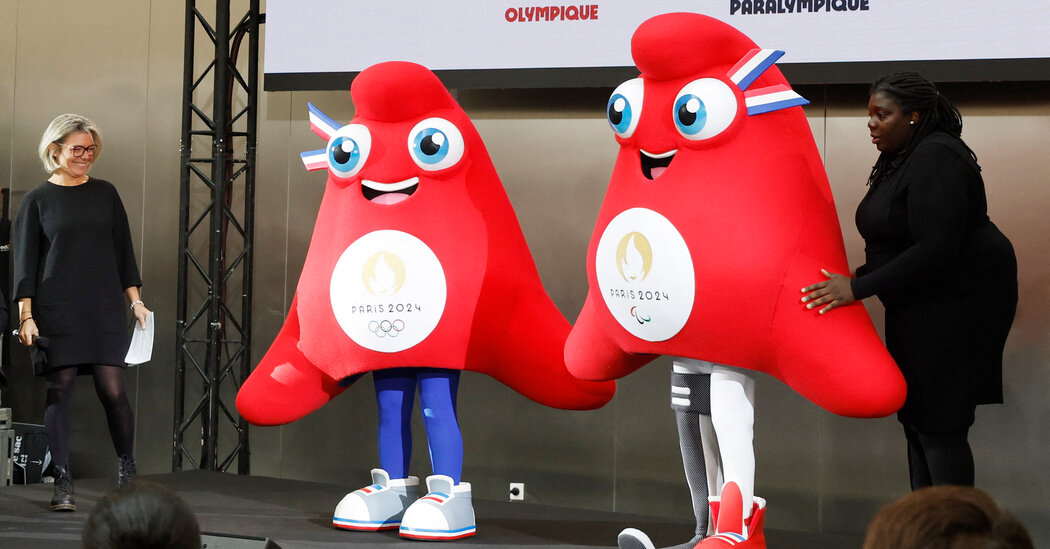
The Olympics mascot is typically a creature of some kind. But for the Paris 2024 Summer Games, it will be a hat.
La Phryge Olympique and la Phryge Paralympique were revealed on Monday: red hats with eyes and legs.
The Phrygian cap, a soft, generally red hat, dates to headgear worn by freed slaves in Phrygia, an ancient Greek kingdom in what is now Turkey. But they are most associated with the American, and especially French Revolutions, where they were worn as a symbol of freedom.
Although you are not likely to see a liberty cap worn by a passer-by at the Place de la Bastille today, the hat is often seen in depictions of the revolution, like Liberty Leading the People by Eugène Delacroix.
At the conclusion of the mascot unveiling ceremony, les Phryges (roughly pronounced freezh) duly arrived on stage and capered gamely for assembled journalists and dignitaries. A stuffed Phryge was also produced, the first of no doubt millions that will be manufactured for mass sale between now and the Games.
Despite their link with the Revolution, which ended in the Terror, a blood bath of executions of men and women, the new mascots were touted as “sporty, party-loving and so French.”
Starting with Schuss, a man with a large red head on skis at Grenoble 1968, Olympic mascots have been important symbols of the Games. Most have been either human-like or animals, whether a dachshund for Munich 1972, a beaver for Montreal 1976, or a tiger for Seoul 1988.
But in a news conference held in French, Tony Estanguet, president of the Olympic organizing committee, revealed with pride that the Paris 2024 mascot was not an animal but “un objet”: an object.
La Phryge Paralympique, unlike some Paralympic mascots of the past, has a direct allusion to the athletes it represents, with one carbon-fiber leg.
In the pandemic-affected Tokyo 2020, the mascots Miraitowa and Someity, vaguely Pokemon-looking creatures, ended up with a low profile, in part because of the absence of fans, a problem Paris is not expecting to have.
The worldwide reaction to the new mascots remains to be seen, but organizers will hope they don’t get the near-universal criticism faced by the mascot of Atlanta 1996, Izzy. It was described by Matt Groening, creator of “The Simpsons,” someone who knows something about delightful cartoon characters, as “a bad marriage of the Pillsbury doughboy and the ugliest California Raisin.”